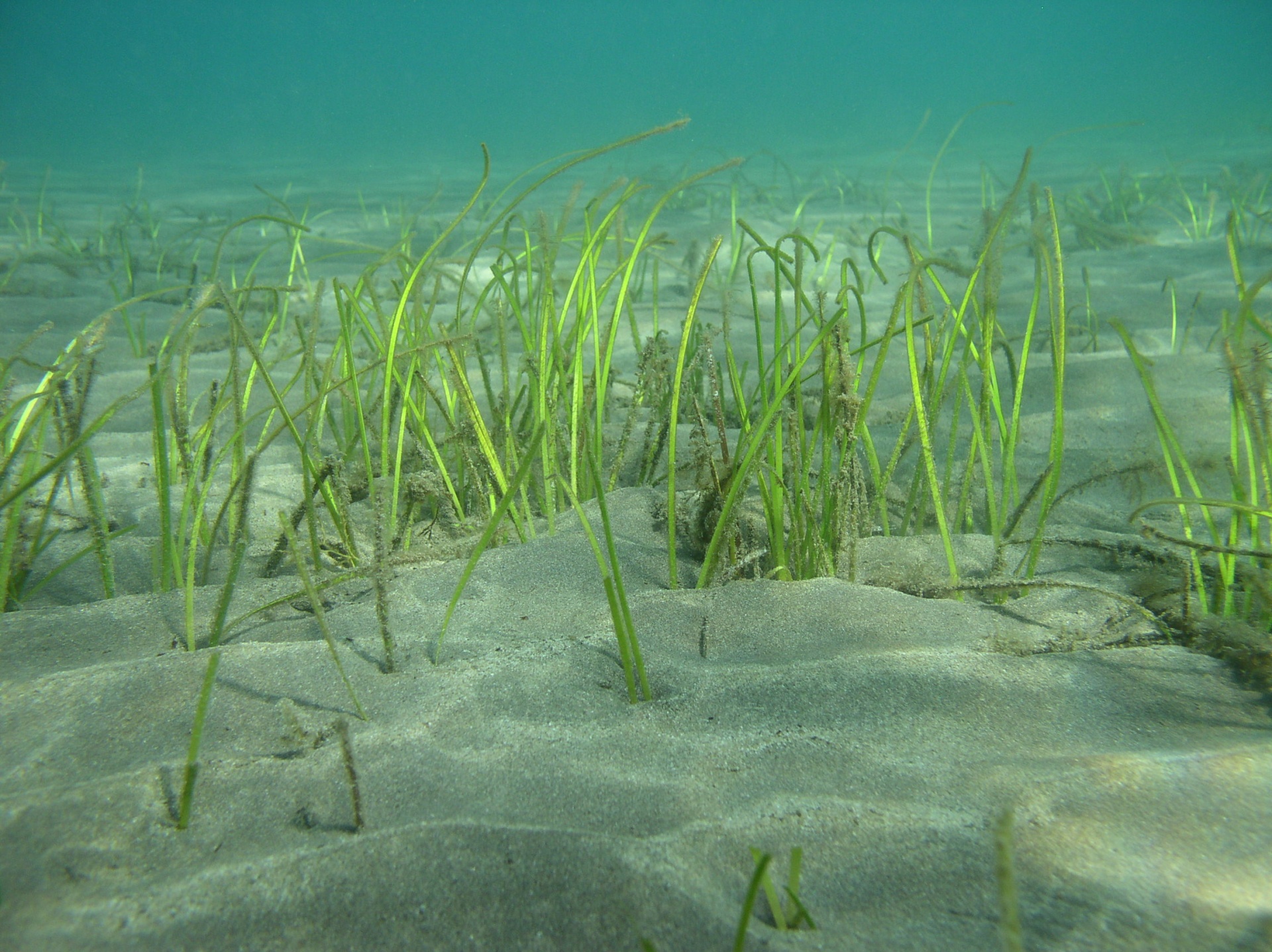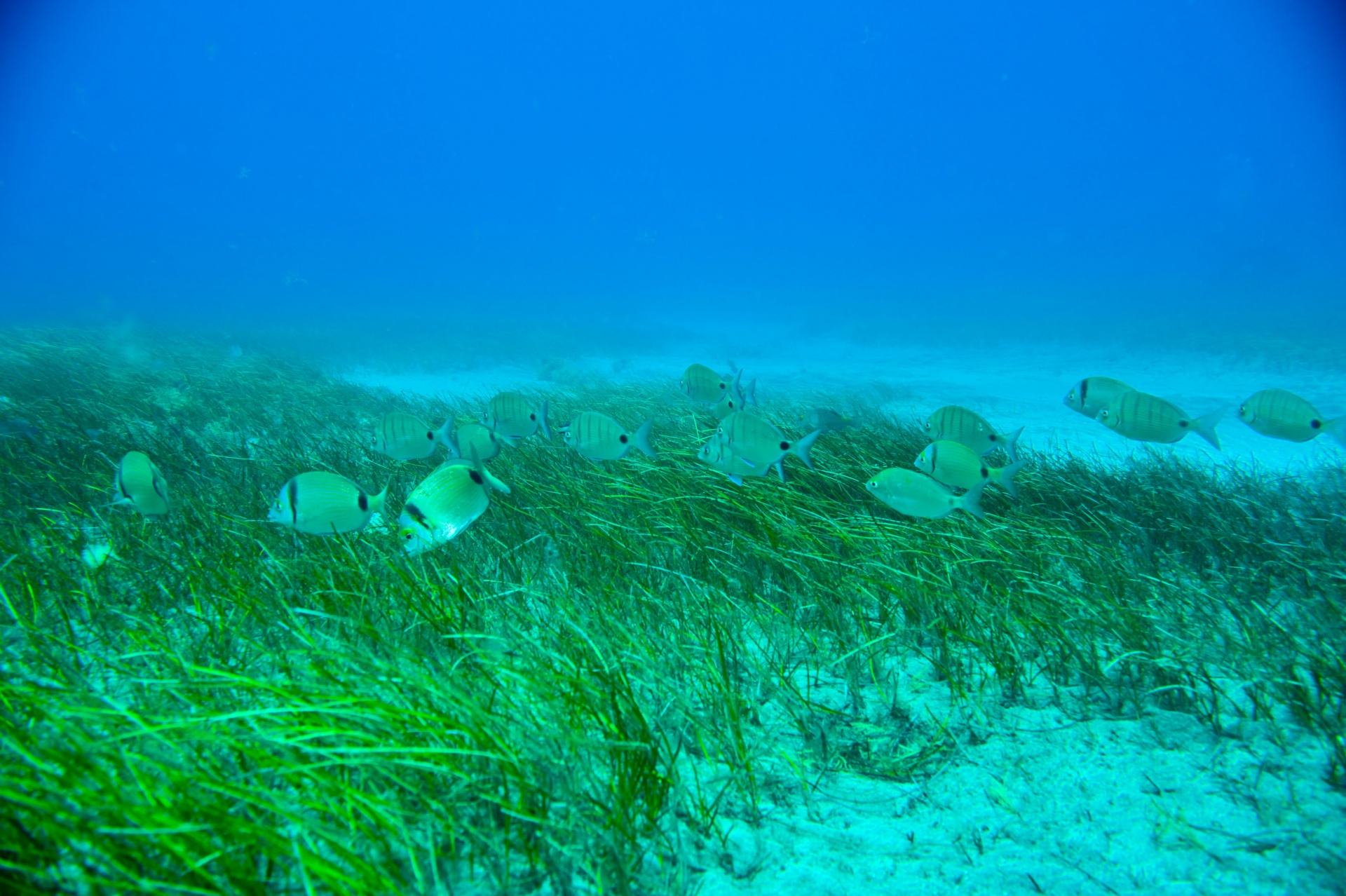Three scientists from the Biodiversity and Conservation group (BIOCON) of the Institute for Research in Sustainable Aquaculture and Marine Ecosystems (ECOAQUA) of the University of Las Palmas de Gran Canaria have participated in a study published in the prestigious journal Science of the Total Environment, which analyses changes in the distribution of seagrass meadows in the Canary Islands, known as seagrass, between 2000 and 2018, and their involvement at the level of carbon sequestration, an innovative environmental management tool protected by European policies.
The study, entitled " Mapping and assessing seagrass meadows changes and blue carbon under past, current, and future scenarios", and signed by researchers from the University Rey Juan Carlos, Miriam Montero-Hidalgo and Fernando Santos Martín, as well as by Professor Fernando Tuya, Professor Ricardo Haroun, and Dr. Fran Otero, the last three from the BIOCON group of the ULPGC, shows how the seagrasses of the Canary Archipelago have suffered a 50% regression in their extension and distribution in the last two decades, which involves a reduction in the capacity to "sequester" carbon in their tissues.
"Almost 2 kilometers of seagrasses are being lost every year," say researchers from the BIOCON group, who show that this is causing serious damage to the biodiversity of the archipelago.
The seagrass is a grass (phanerogam of the angiosperms) up to 60 cm high, rhizomatous and rooted in the seabed. Carbon sequestration is a natural resource management tool that promotes the valorization of habitats with the capacity to storage carbon. In seagrass, carbon sequestration refers to the process of capturing and storage of carbon dioxide from the atmosphere in this natural reservoir in our ocean, just as it would occur in forests on land. This process helps to reduce the amount of CO2 in the atmosphere and thus mitigate climate change.

Photo 1.- Specimens of Diplodus, a genus of fish of the Sparidae family, using sebadales as habitat, in Gando (Gran Canaria). Photo 2.- Sample of seagrass (Cymodocea nodosa) in Playa del Inglés (Gran Canaria). Author: Fernando Espino, researcher of the BIOCON group.
The study led by the Department of Chemical and Environmental Technology of the Rey Juan Carlos University of Madrid, in collaboration with the ULPGC, is included in the 'Move on' project, which ends in April 2023, and has modeled four possible situations in the evolution of the island's seagrasses until 2050 to estimate how they will affect their ability to accumulate, or 'sequester' carbon. All situations have been understood as amounts of carbon sequestered or emitted, with their respective mathematical values.
Through these calculations, the study warns that the total degradation of the seagrass meadows would involve emission of carbon with a cost of 126 million euros, while an appropriate management of the impacts on these seagrass meadows would involve a saving of almost 74 million euros. The study also highlights the importance of the need to carry out a sustainable management of natural and marine resources, as well as to promote the blue economy in the islands.
The carbon stock in the Canary Islands corresponds to 1.5% at the national level and 0.015% at the world level, in the medium of what is expected for the extension of our seagrass meadows.
Science of the Total Environment is one of the leading journals in the field of environmental sciences, with an impact index of 10.75.
This study is important for the Canary Islands and its economy, as it shows valuable information on the sustainable management of natural and marine resources in the region.
You can read the article here.
For more information, please contact: Beatriz Díaz – beatriz@mandarinacomunicacion.es – 620410871


